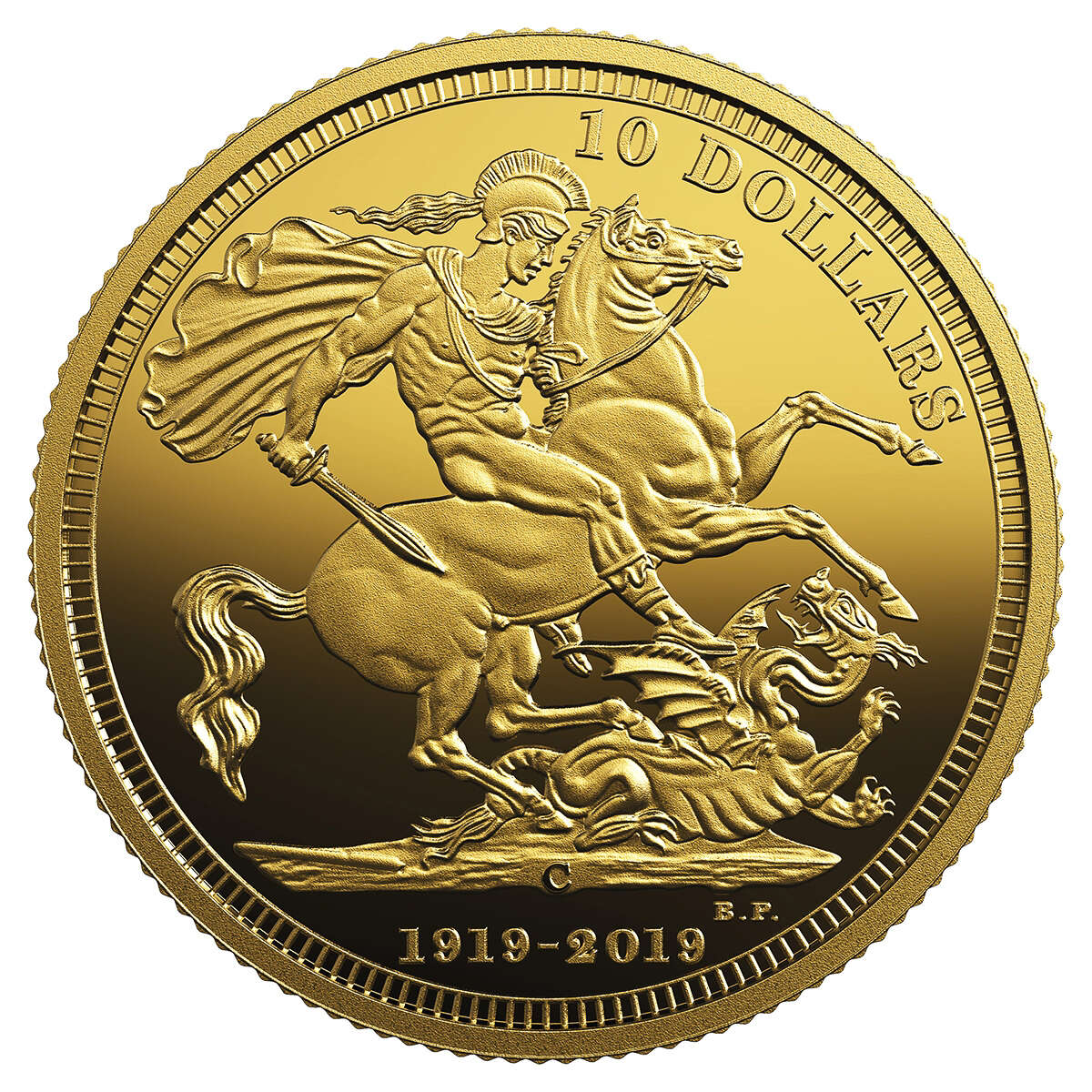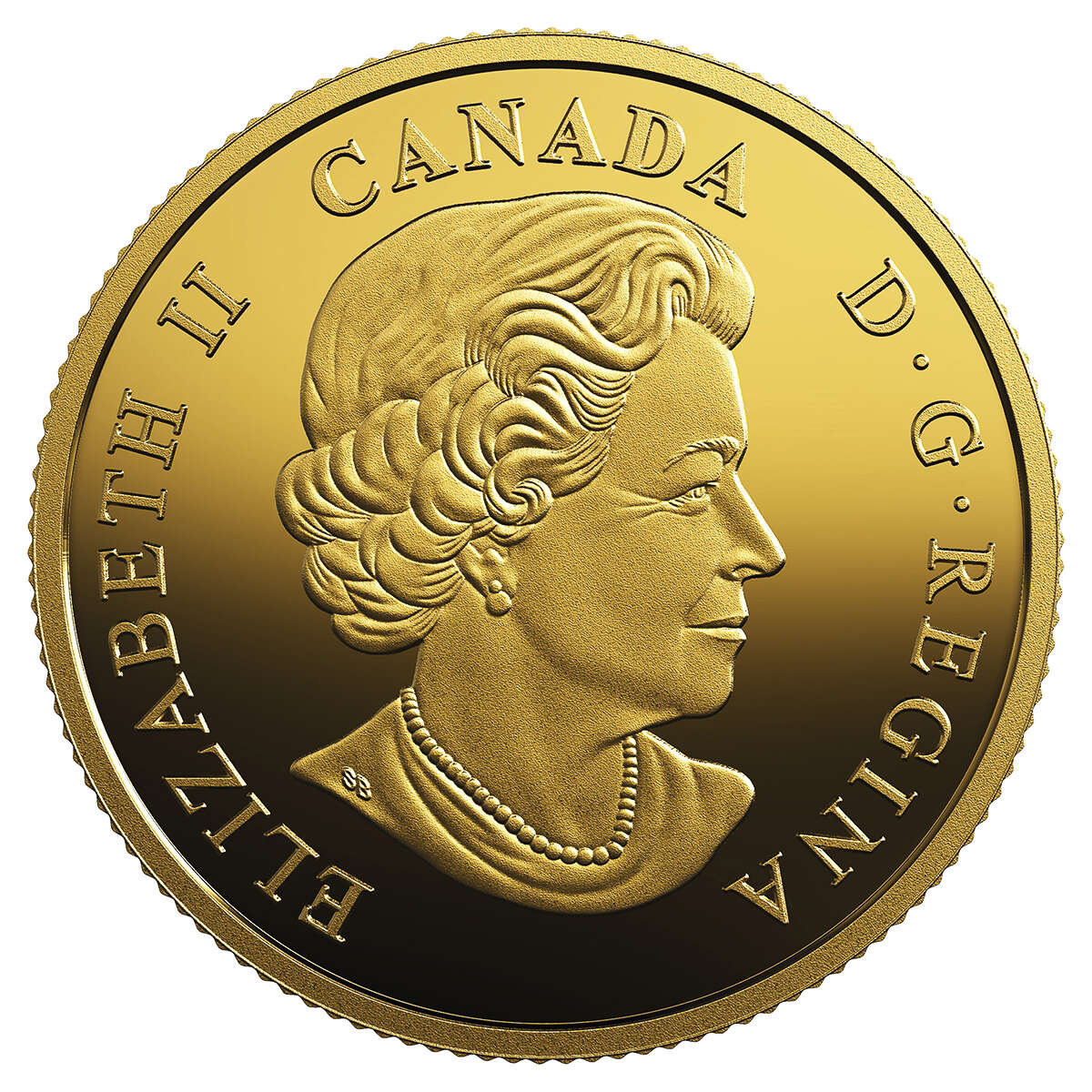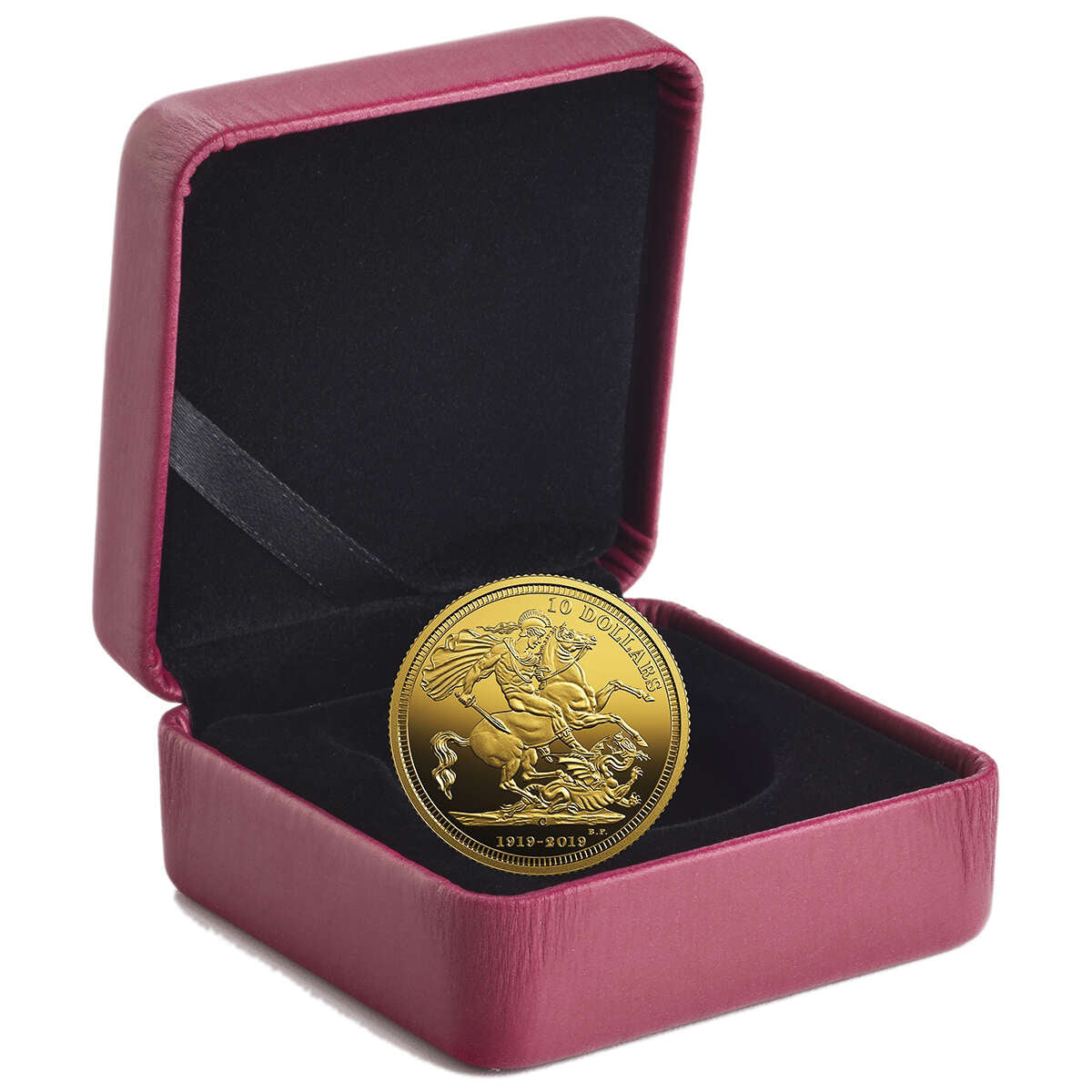Description
Mark the 100th anniversary of the close of a golden era with this stunning re-creation of Canada’s last circulating Gold Sovereign coin. After opening in 1908 as the Ottawa Branch of the Royal Mint (of England), Canada’s mint maintained close ties to England, including striking gold coins that were legal tender both in Canada and throughout the British Empire. Canada’s gold sovereigns maintain the classic image of St. George slaying the dragon, with the addition of a “C” (Canada) mint mark above the date. While the original coins were struck in 22 karat gold, this commemorative collector issue is struck in one quarter ounce of .9999 fine gold. The coin is double dated 1919-2019 and has a limited mintage of just 1,000 coins. HST/GST Exempt.
The Design:
The reverse features Benedetto Pistrucci’s neoclassical-style design for the British gold Sovereign, as it appeared on coins struck by the Ottawa Branch of the Royal Mint from 1908-1919 as well as from the Royal Mint in England and in various other parts of the British Empire. Saint George is shown on horseback, his left hand holding the reins while his right hand holds a sword. A dragon lies wounded at the horse’s feet. The obverse features the effigy of Her Majesty Queen Elizabeth II by Susanna Blunt.





